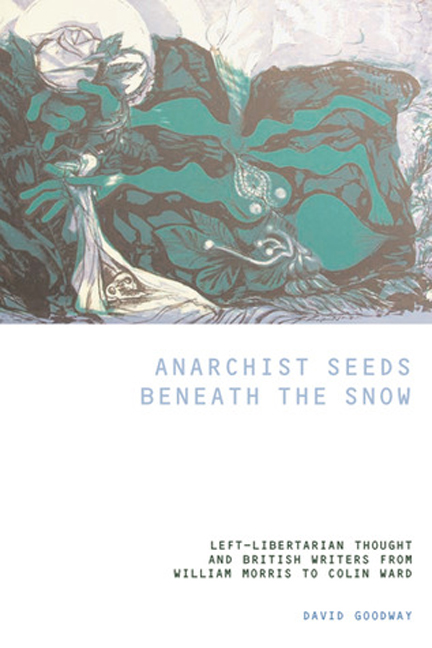 Anarchist Seeds Beneath the Snow
Anarchist Seeds Beneath the Snow Book contents
- Frontmatter
- Contents
- Dedication
- Acknowledgements
- Abbreviations
- 1 Introduction
- 2 Anarchism and libertarian socialism in Britain: William Morris and the background, 1880–1920
- 3 Edward Carpenter
- 4 Oscar Wilde
- 5 John Cowper Powys I: His life-philosophy and individualist anarchism
- 6 The Spanish Revolution and Civil War – and the case of George Orwell
- 7 John Cowper Powys II: The impact of Emma Goldman and Spain
- 8 Herbert Read
- 9 War and pacifism
- 10 Aldous Huxley
- 11 Alex Comfort
- 12 Nuclear disarmament, the New Left – and the case of E.P. Thompson
- 13 Christopher Pallis
- 14 Colin Ward
- 15 Conclusion
- Bibliography
- Index
9 - War and pacifism
- Frontmatter
- Contents
- Dedication
- Acknowledgements
- Abbreviations
- 1 Introduction
- 2 Anarchism and libertarian socialism in Britain: William Morris and the background, 1880–1920
- 3 Edward Carpenter
- 4 Oscar Wilde
- 5 John Cowper Powys I: His life-philosophy and individualist anarchism
- 6 The Spanish Revolution and Civil War – and the case of George Orwell
- 7 John Cowper Powys II: The impact of Emma Goldman and Spain
- 8 Herbert Read
- 9 War and pacifism
- 10 Aldous Huxley
- 11 Alex Comfort
- 12 Nuclear disarmament, the New Left – and the case of E.P. Thompson
- 13 Christopher Pallis
- 14 Colin Ward
- 15 Conclusion
- Bibliography
- Index
Summary
Herbert Read was a military hero who had seriously considered in 1918 staying in the army and making his career there; but his opinions changed dramatically in the course of the succeeding decade and he was eventually to become an advocate of Gandhian non-violence. In this he was not exceptional, a significant minority, some of them also former soldiers, reaching similar conclusions during the interwar years.
Almost 700,000 Britons had been killed during the First World War, and to this figure needs to be added 200,000 (almost a third of them Indian) from various parts of the empire. Another one and a half million suffered permanent disability from either wounds or gas. A surprising class differential was that casualties were proportionately three times heavier among junior officers than in the ranks. Other countries experienced even greater losses: for instance, twice the number of the United Kingdom's deaths in the case of France. The natural revulsion at this slaughter and the other horrors of the trench warfare on the Western Front was reinforced at the end of the 1920s by the publication of a series of outstanding novels and autobiographies – including Richard Aldington's Death of a Hero, Siegfried Sassoon's Memoirs of a Fox-Hunting Man and Memoirs of an Infantry Officer, Edmund Blunden's Undertones of War and Robert Graves's Goodbye to All That – and the production of R.C. Sherriff's play, Journey's End. Erich Maria Remarque's All Quiet on the Western Front appeared in German in 1929, in English translation the same year, and as Lewis Milestone's major film as early as 1930. Sassoon had edited Wilfred Owen's poems in 1920; Blunden was to bring out a much fuller collection in 1933.
It is therefore entirely explicable that when there were renewed menaces of war after 1933, with the National Socialists having come to power in Germany and the mounting aggressions of two other authoritarian powers, Japan and Italy, con siderable pacifist sentiment manifested itself in Britain. Ten days after Hitler had been appointed chancellor, the Oxford Union voted by 275 to 153 votes that ‘this House will in no circumstances vote for its King and country’.
- Type
- Chapter
- Information
- Anarchist Seeds Beneath the SnowLeft-Libertarian Thought and British Writers from William Morris to Colin Ward, pp. 202 - 211Publisher: Liverpool University PressPrint publication year: 2006


